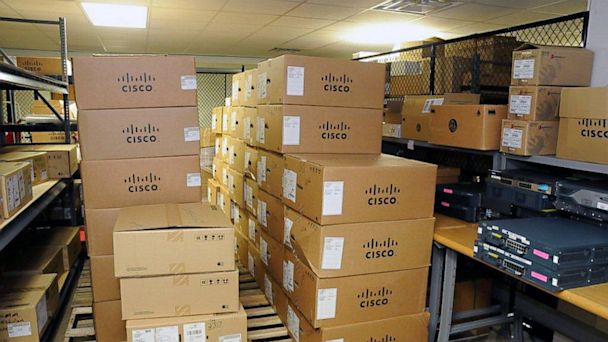Washington Watchdog: $14M Wasted on Broadband Effort in W.Va. Alone

ABC News
To ensure the United States remained competitive economically, the government came up with $7 billion in 2009 to spread broadband across the country and hook up thousands of communities.
In March, Larry Strickling, an administrator with the U.S. National Telecommunications and Information Administration, spoke on Capitol Hill, lauding the program for deploying more than 86,000 miles of broadband structure, building 12,000 connections for schools and libraries, and generating more than 500,000 new broadband subscribers.
"The vast majority of our projects have performed well," he told ABC News after the hearing. "We are quite happy with the program."
But in one West Virginia closet, stacks of high-speed routers sat unused, paid for by U.S. taxpayers at the tune of $20,000 a piece - all because the state bought too many of the wrong routers. In that closet has sat $1.25 million in routers - equal to a year's pay for 30 teachers - gathering dust for nearly three years.
Weigh in on this story on Diane Sawyer's Facebook page.
"It's the people's dollars that we're dealing with," Rep. Cory Gardner, R-Colo., told ABC News. "None of it should be wasted. And in this case, it's obscene."
In West Virginia alone, $14 million has been wasted, according to the state auditor.
Critics said they are concerned about where the money was spent.
For example, some of the routers were used. But while the small community library in Shepherdstown, W.Va. - which sees fewer than 5,000 annual visitors - got them, two local high schools just a couple of miles away did not.
In Gardner's state, he said, a high school in the southeast with a graduating class of one had three fiber optic lines laid to it. Now congressional investigators are questioning whether as much as $230 million was wasted.
"We have tremendous waste going on," Gardner said. "I think [the program] hasn't had the proper oversight. … If you look at the numbers around the country in terms of connectivity, they've hardly put a dent in the number of people who were connected a year or two ago versus today. They can't even tell us the number of who are benefiting from this."
Despite being grilled by members of Congress during the March hearing about waste in the broadband stimulus project, Strickling has refused to stop the programs and defended their results.
He said nine projects were suspended though four were now back on track. Three were on suspension - accounting for $158 million - and the remaining two had been terminated. They were worth $139 million but had only spent $11 million.
"As with any program of this size and complexity, we have had cases where intervention by us was necessary," he told ABC News. "Fortunately, because we work hard to identify the issues early … I am pleased to report that our broadband efforts are delivering substantial and meaningful benefits across the country."
The broadband stimulus program is currently tapped out.
"I think they wasted money through a lack of oversight. They wasted money by duplicated services that already exist. They wasted money by not going into places that truly needed it," Gardner said. "That's waste and that's abuse of this program."